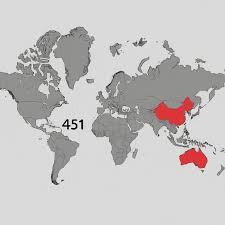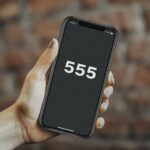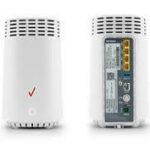The 451 area code is currently an unassigned three-digit code within the North American Numbering Plan (NANP), which governs telephone numbering in the United States, Canada, and several Caribbean countries. This means that a standalone number beginning with the prefix 1-451 is not currently in service for any specific city or state.
Therefore, if you receive a call from a number that appears to start with the 451 area code, you should immediately be cautious. Such calls are highly likely to be scam attempts using caller ID spoofing to disguise their true origin.
This article clarifies the official status of the 451 area code and provides essential steps to protect yourself from associated phone fraud.

The Official Status of Area Code 451
Within the NANP, area codes are reserved and allocated by the North American Numbering Plan Administrator (NANPA). The 451 code currently falls into a block designated as available for future geographic assignment.
| Detail | Status |
| Geographic Location | None (Unassigned/Reserved) |
| Country | Not currently in use in the U.S., Canada, or the Caribbean. |
| Time Zone | N/A (Not tied to a location) |
| Call Risk | High risk of Caller ID Spoofing or fraudulent calls. |
Note on Confusion: The number sequence ‘451’ often appears in data that is not related to phone numbers, such as ZIP Codes (e.g., in parts of Ohio) or HTTP error codes (HTTP 451 is the code for “Unavailable For Legal Reasons,” a reference to the book Fahrenheit 451). However, as a telephone Area Code, it is officially inactive.
High Risk: Caller ID Spoofing and Scam Tactics
The primary reason consumers receive calls from an unassigned area code like 451 is because scammers are using Caller ID Spoofing to trick recipients.
Why Scammers Use Unassigned Codes
Scammers intentionally use unassigned or reserved area codes for several reasons:
- Evading Filters: By using a code that is not yet categorized as spam or fraudulent, scammers hope to bypass basic automated call-blocking features on mobile phones and carrier networks.
- Disguising Location: The call origin is completely obscured. The scammer might be calling from anywhere in the world, but the 451 code prevents tracing their real location.
Common Scam Types Associated with Spoofing
Calls that use a spoofed or unassigned area code are almost always phishing attempts designed to steal money or personal information. These include:
- Financial Scams: Claiming to be from the IRS, Social Security Administration, or your bank, and demanding immediate payment or asking for personal details to “verify” your account.
- Tech Support Scams: Claiming your computer has a virus and pressuring you to allow remote access or pay for immediate support.
- Prize/Sweepstakes Scams: Luring you into believing you have won a prize and must pay a fee or provide banking details to claim it.
Actionable Steps: How to Handle Calls from 451
If your phone rings and displays a number beginning with 1-451, your response should be immediate and simple:
- Do Not Answer: Never answer a call from a number you do not recognize, especially one with an unassigned area code. Answering verifies that your number is active and marks you as a potential target for future fraud.
- Do Not Call Back: Calling an unassigned number provides no benefit and may connect you to a premium international service (though this is a lower risk with NANP reserved codes, it is still best to avoid the risk).
- Block the Number: Use your smartphone’s built-in call blocking feature to prevent that specific number from contacting you again.
- Report the Call: Report the suspicious call to your mobile carrier and the Federal Trade Commission (FTC) to help authorities track and stop illegal robocalling operations.
Frequently Asked Questions
Will the 451 area code ever be assigned to a city?
Yes, eventually. The NANPA holds the 451 area code in reserve for future geographic assignment. When telephone numbers in an existing region are exhausted, 451 may be introduced as a new area code, likely as an overlay. However, this process takes years and is always formally announced well in advance of activation.
Is there any legitimate use for the 451 area code today?
No. For the public, there is no legitimate reason for a phone call to originate from the 451 area code today.
Can I get charged international rates if I call back a 451 number?
While the 451 code is part of the North American Numbering Plan (NANP), the safest policy is to avoid calling back entirely. Scammers are sophisticated and sometimes use spoofing to disguise a number that ultimately routes to a high-cost international or premium service, resulting in unexpected charges on your bill.


